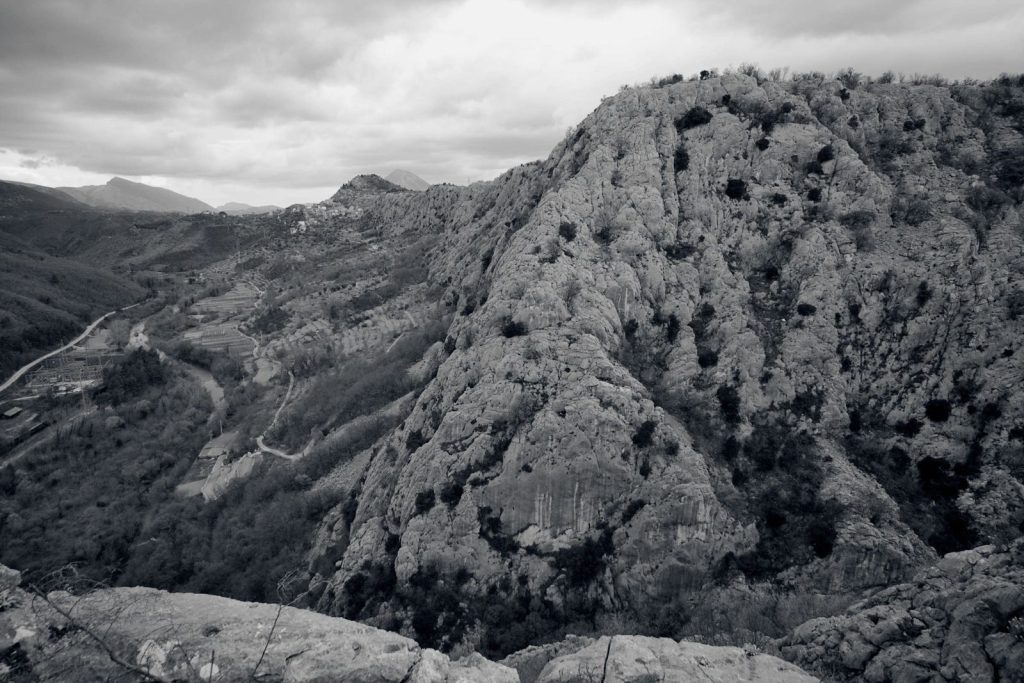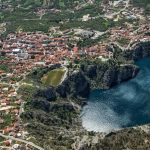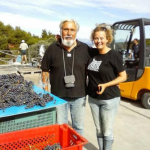As Poslovni Dnevnik writes on the 8th of November, 2020, in Caporice in the Dalmatian hinterland, 162 million kuna has been contracted for small family farms (OPGs) from European Union (EU) funds. An impressive 1,600 projects worth as much as 61 billion kuna were also designed in the often wrongly overlooked Dalmatian hinterland, HRT reports.
As much as 74 million kuna – of which two thirds have been provided from European Union funds – covers the worth of the Competence Centre in the Business and Service Centre of the Caporice Economic Zone located near Trilj. The centre would implement research and development programmes that should provide the local economy of the area with a much better position on the market.
To start with, work has begun on a line of fifteen innovative pharmaceutical, cosmetic and food products based on medicinal and aromatic herbs. In the Caporice plant, although the capacity is even higher, an average of 7,000 litres of milk are processed per day – but not just any old milk.
”For a good product, the most important thing is good raw material, naturally produced in the traditional way from local pastures. We make sure it doesn’t come from large farms, because our product is specific. We’re engaged in the production of hard cheese from three types of milk and in this process the natural ingredients come to the fore. It’s best when they’re from the domestic area,” explained the advisor of Pudja Dairy’s management, Darko Cobanov.
Cheese with lavender, basil and sage
The Dalmatian hinterland is an area rich in and diverse aromatic and medicinal herbs, which, the experienced producers are convinced, would go well with top-quality cheeses. They’ve won awards and noticed that cheeses that have additives – lavender, immortelle, scream, basil and sage – win in many categories. Although they’ve been used since ancient times, wild plants have not yet been utilised to their full potental, stated the acting director of the institution CEKOM 3LJ, Ivan Susnjara.
”We’re just the little Dalmatian hinterland. We don’t have large agricultural areas. If we want to be innovative in something, we must first use what we do have. Various studies have showcased the benefits and values of active substances in medicinal plants and now, through the Research Centre, it’s going to be easy for us to apply it with enterprises,” said Mate Pastar from the RERA S.D. public institution.
Innovation in cooperation with the faculty and the Rudjer Boskovic Institute
”The idea is that other partners prepare the medicinal herbs within the project in the form of essential oils or in dry form, and the analysis of their effectiveness will be conducted by renowned institutions across Croatia,” added Darko Cobanov. This would involve the Rudjer Boskovic Institute and the Zagreb Faculty of Veterinary Medicine and Agriculture, all the way to the Institute for Adriatic Cultures and Karst Reclamation and the Faculty of Chemistry and Technology in Split.
”The Rudjer Boskovic Institute will deal with this part of the chemical characterisation of non-volatile compounds and at the same time on the evaluation of biological activities or potential, which means that we actually want to determine whether or not a medicinal plant actually does boast any antibacterial, antifungal, antioxidant capacity, immunostimulating, regenerative, or antiviral properties,” explained Dr. sc. Rozelindra Coz-Rakovac from Zagreb’s Rudjer Boskovic Institute.
”Since we have all the equipment for modern extraction techniques and analytical equipment, we’re going to work on trying to come up with new compounds. We’ll work very hard on the development of CO2 extracts. We in Osijek were the first to start doing it, but on a laboratory scale – we didn’t try to transfer it to an industrial scale. Each plant contains bioactive substances, so we’ll try to reach those that are important for the development of new products,” announced the Vice Dean for Science of the Osijek Faculty of Food Technology, Prof. dr. sc. Stela Jokic.
Value-added products guarantee a better market position and, not only survival, but also further development and growth for the Dalmatian hinterland
”There is no life for entrepreneurship and new entrepreneurs without creating the proper conditions for that. There can be no demographic story without any new jobs. To give the opportunity to sixteen educated young people to have their bread and earn their salary here and to attract businessmen in a ring relationship, to create new jobs – this is the only thing that can preserve the Dalmatian hinterland and its people, and not only in the hinterland but across Croatia,” emphasised the mayor of Trilj, Ivan Sipic.
”The interest of others speaks for itself as a driver of these projects. We have incubators and we receive inquiries from those interested on a daily basis. Everything you see around us makes no sense if there is no one to use it, if there is no product from it. Farmers must have space to create new value-added products,” repeated Mate Pastar.
Thus, they contracted a massive 162 million kuna for small family farms from European Union funds alone, and the activities they’re currently working on and implementing are worth three times more than that amount, while more than 1,600 projects worth as much as 61 billion kuna have been designed in and for the Dalmatian hinterland.
For the latest travel info, bookmark our main travel info article, which is updated daily.
Read the Croatian Travel Update in your language – now available in 24 languages
Join the Total Croatia Travel INFO Viber community.












